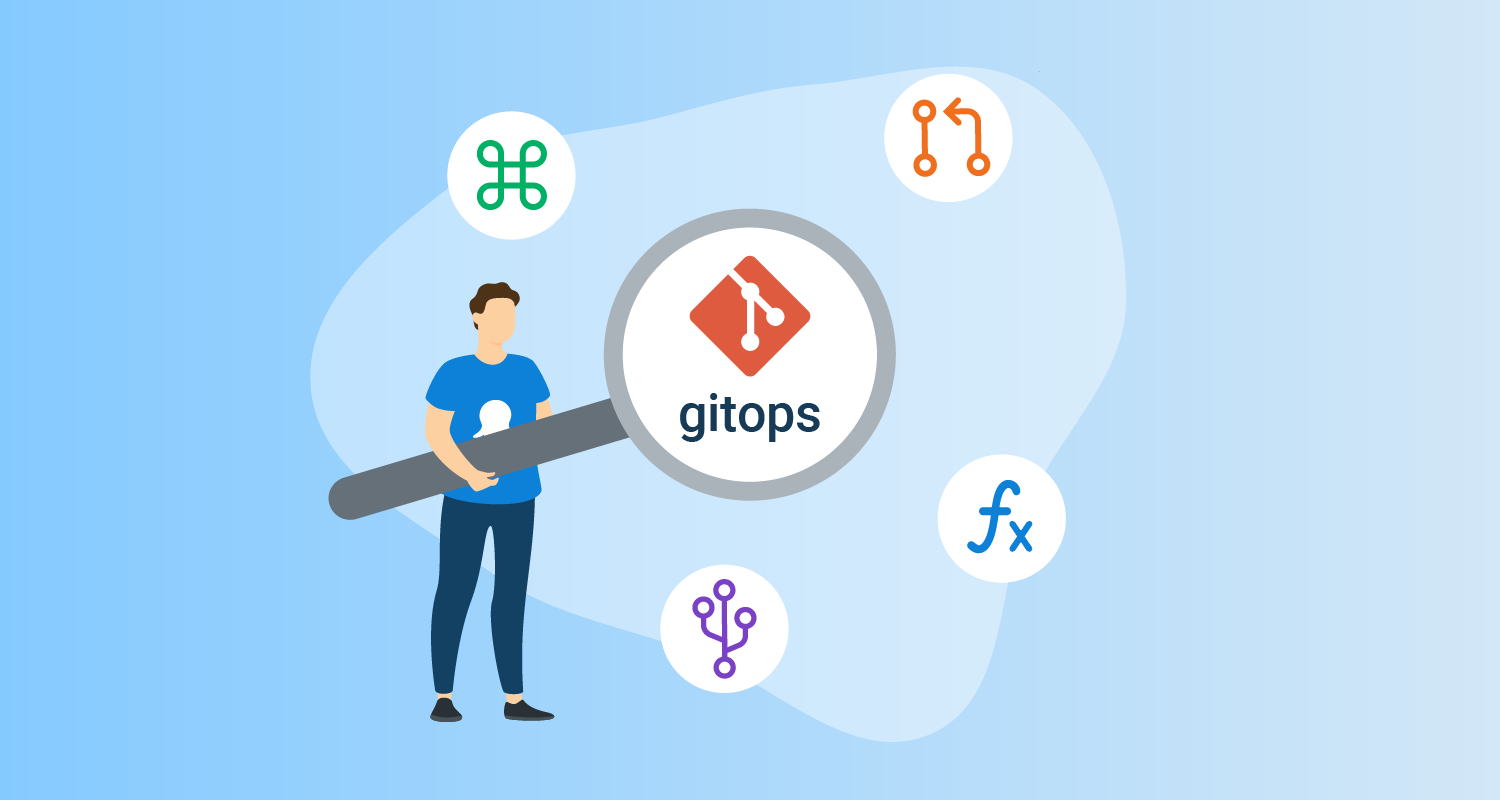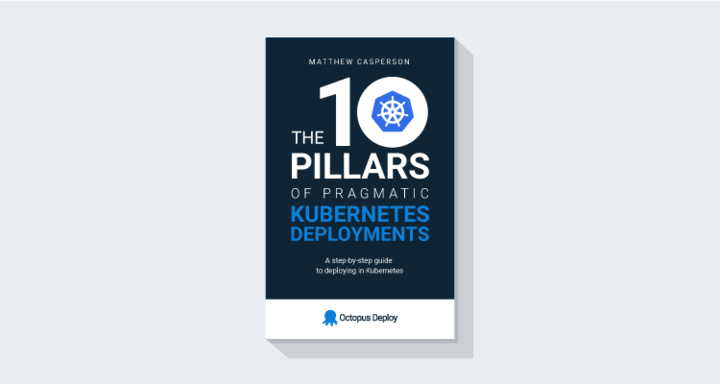Following on from the 10 pillars of pragmatic deployments, I wrote an ebook about the 10 pillars of pragmatic Kubernetes deployments with Octopus Deploy.
The 10 pillars speak to the needs of modern DevOps teams, always being asked to deliver more in less time. By understanding the value of each pillar, and learning practical implementations, DevOps teams can meet these challenges head-on.
Who will benefit from the ebook?
The ebook is a comprehensive guide to building a repeatable deployment pipeline from Octopus to Kubernetes.
It’s aimed at people looking to build deployment pipelines that scale as the following increases:
- The number of teams involved in deployments
- The number of applications being deployed
- The frequency of deployments
- The expectation that code reaches customers faster
What you need to get started
To follow along with the exercises in the book, you need:
- A Kubernetes cluster. The book uses a Kubernetes cluster hosted in Google Cloud, but beyond initial administration tasks, which rely on the administrative credentials exposed by a Google Cloud Kubernetes cluster, any Kubernetes cluster can be used.
- Access to administrative credentials.
- An instance of Octopus. If you’re not an Octopus customer, you can sign up for a free trial to follow the examples in the book.
The ebook assumes you know concepts like pods, deployments, services, service accounts, secrets, and configmaps. However, all the Kubernetes resources created in the book provide detailed instructions on the values to enter into Octopus, so it’s possible to get a sense of the deployment processes without a deep understanding of every setting.
Happy deployments!
Tags:
Related posts

The State of GitOps report: Exploring effective GitOps
Key insights from the first State of GitOps report based on 660 survey responses. Learn how high-performing teams achieve better software delivery, increased reliability, and stronger security through 6 essential GitOps practices.

Inside DevOps with Oluwateniola Olubowale from United Capital
A series where we share lessons learned from those on the frontlines of DevOps. This post features Oluwateniola Olubowale, DevOps Engineer at United Capital.

Beyond skeleton pipelines: who owns your software pipeline?
Most teams have basic CI/CD pipelines that work but never improve. Without clear ownership, these 'skeleton pipelines' become bottlenecks instead of enablers.




